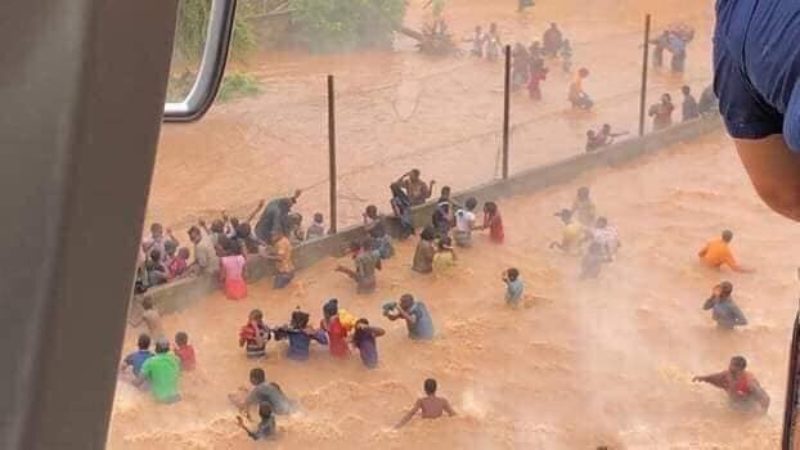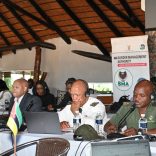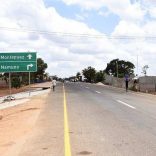Mozambique: Two detained in possession of human bones
Op-Ed: Tragedy foretold, Idaí? – A Verdade

Photo: Agencies
We’re never prepared for a Category 4 cyclone. As telecommunications are re-established, we can now see the terror half a million people faced on the night and early morning on Thursday and Friday. But harder to describe in words is the whistle of the wind that ripped all the ceilings, broke windows, felled trees and power poles, wrecked telecommunications, and devastated the city of Beira.
That our country is one of the most vulnerable on Earth to the extreme events of nature is nothing new. Millions of dollars have been spent on studies and consultants to prove what everybody knows: the climate has changed. There’s no shortage of plans for prevention, for mitigation, reduction, action. What has not happened is money to make the National Institute of Disaster Management (INGC) slogan – “Better safe than sorry!” – a reality.
Apart from the political leadership of the last few years, the INGC has trained and experienced professionals, like many of the executives who represent state institutions in the National Emergency Operational Centre. The reality is that it works on preventative actions throughout the year without funds, and when the rainy season comes, the government has not made available the money needed. Since 2015, only about 20 percent of Contingency Plan requirements have been made available – a mandatory instrument in light of Law 15/2014.
This results in bizarre situations that culminate in peoples’ deaths. For three days, the INGC was unable to communicate or coordinate its actions because, like the people themselves, it depends on normal telecommunications. The institution does not have a single satellite phone or alternative communications kit in case of power outage. The drones, put forward as a solution, do not fly in bad weather, nor do they have much flight autonomy. Indeed, they are little better than toys.
In addition, communication with neighbouring countries again failed. As in 2015, Malawi failed to warn of the wave that flooded the Licungo river, and Zimbabwe did not notify Mozambique about the overflowing of its dam, which precipitated the flooding of the Búzi and Púnguè rivers.
Whatever else can be said about Tropical Cyclone Idai, of the 16 tropical cyclones that have hit Mozambique since 1980, this was the best-publicised. Residents of Beira admit that they didn’t pay the warnings sufficient heed, although most did not have any way of leaving the city or seeking refuge away from the worst-hit locations.
There is no doubt that, at the moment, the priority is still to rescue citizens and assist the survivors, but, as a nation, we have to reflect and review the priorities. Money never arrives to evacuate the people from the makeshift homes damaged by the weather, but there is always money for the Faustian life of the leaders and self-proclaimed liberators of the motherland.
Idaí*? We have to rebuild a more resilient Beira, but that has always been rejected by the party that has governed Mozambique since independence. After all, Beira is counted as the stronghold of the opposition!
*’Idaí’ has become viral since Cyclone Idai hit Mozambique on March 14. ‘Idaí’, with the accent on ‘i’, makes the the word sound as ‘e daí’, meaning ‘and then’ or ‘and from there’ or ‘and so what’.












Leave a Reply
Be the First to Comment!
You must be logged in to post a comment.
You must be logged in to post a comment.